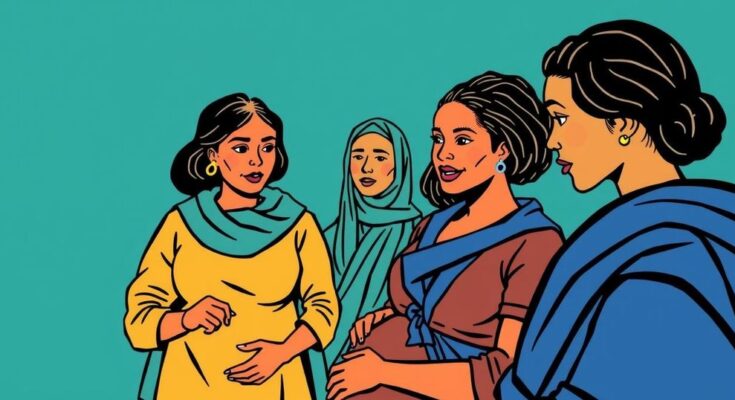Girls in Africa face profound challenges regarding sexual and reproductive health, including limited access to education and maternal care. With significant rates of teenage pregnancies, the need for improved prenatal care is urgent. Highlighted by the recent ACERWC session, the need for girls’ voices in legislative processes related to their health is critical for meaningful change.
In Africa, girls grapple with considerable obstacles to achieving optimal sexual and reproductive health. They lack access to essential sexual health education and adequate maternal healthcare during pivotal moments such as pregnancy, childbirth, and postpartum. The recent discussions from the African Committee of Experts on the Rights and Welfare of the Child underscore the urgent need to amplify girls’ voices in shaping maternal health policies and practices.
The landscape of maternal health in Africa is marked by alarming statistics, with one in four girls giving birth before reaching adulthood. In 24 countries, teenage pregnancy rates exceed 25%, creating a pressing demand for accessible prenatal and skilled birth services. Unfortunately, many adolescent mothers receive insufficient care, as only 40% attend the advised number of antenatal visits and just 48% benefit from skilled assistance during delivery, significantly increasing their risk of complications and mortality.
To tackle these challenges, there is a pressing need for African nations to recognize and uphold girls’ rights to make autonomous decisions about their health. Incorporating girls’ perspectives into law and policy discussions concerning their sexual and reproductive rights is paramount. Ultimately, ensuring that girls feel heard and respected in healthcare decisions can lead to improved maternal health outcomes and empower them for a healthier future.
Original Source: www.hrw.org



